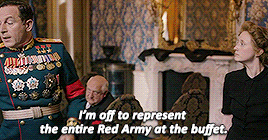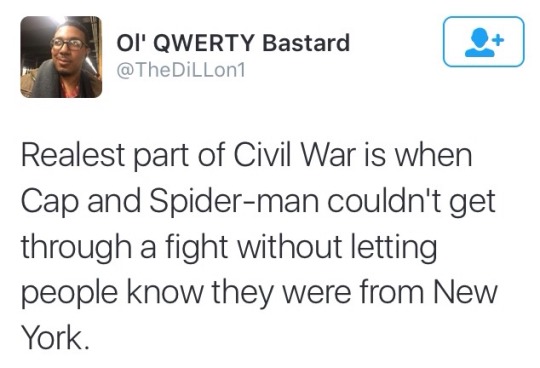Don't wanna be here? Send us removal request.
Text








today’s protests in moscow. over 1000 people detained, with lots of police brutality and direct violations of the law. it was intended as a peaceful protest against the shameless rigging of the election to the moscow city council that declared all independent candidates (as opposed to the ruling party) invalid and most of the signatures collected by them fake, later detaining and questioning them and searching their homes at night. the protest was handled with extreme violence, i wrote more about it here. here is a NY Times article about the protest. some examples of the footage of clashes with the police and police violence (heavy content warning): 1, 2, 3, 4, 5.
you can help by donating to russian human rights organizations, they run entirely on donations and every donation counts. OVD-Info is a project that monitors human rights violations and helps those detained and arrested, both in jails and later in courts. HERE is their donation page in english.
please reblog this post or my earlier post and spread the word!
(photos by evgeny feldman for meduza.io, source)
828 notes
·
View notes
Text
holy shit, remember when i suggested that series!legasov could listen to underground bard song such as galich? i just learned, thanks to @comrademichel, that in march 1988 actual legasov discussed alexander galich’s poetry with his friend and talked about how good it is. for those not knowing the context, galich was a soviet singer-songwriter (they called themselves “bards” in the 60s and later, and he was one of the first) whose songs and poetry were banned in all official channels of information because of their criticism of the regime. they were often bitter and satirical and mocked the absurdity and the lies of the soviet government. he was forced to emigrate from the USSR in 74. his works were only rehabilitated in 1988, but legasov’s friend confirms that the talk they had about galich was before that rehabilitation. i couldn’t assume that irl!legasov would enjoy galich, at least not before chernobyl - he was too loyal to the system for that, but i guessed galich’s words spoke to him directly after chernobyl. turns out, he quoted galich’s poetry way before chernobyl, too, but nevermind that. just look at one of the songs he mentions, старательский вальсок, “goldminers’ little waltz” – good god, i can imagine how relatable, how painful it was to him in march of 1988.

(translation source: Maria Tumarkin, “Listening to the Long Soviet Silence: Trauma, Memory and the Soviet Experience”)
53 notes
·
View notes
Text
An assortment of anecdotes about the historical Boris Shcherbina
From В.И. Андриянов, В.Г. Чирсков, Борис Щербина.
This is long, so press J to skip if this isn’t your thing.
In fact, this got so long that I realized I’ll never post this if I try to write up everything at once, so have the first batch of anecdotes, probably to be continued.
* Boris Shcherbina was a cautious man. The main rule in his family was, “We can’t. We shouldn’t.” Buying expensive things? We shouldn’t. Lavish trips? We can’t. Anything that could undermine Boris’ reputation was out of the question. When his grandson, whom he loved dearly, flunked out of the uni, Boris didn’t interfere to make sure that he wouldn’t end up in the army (students were exempt from the mandatory military service, but once you flunked out, that’s where you ended up): “The army? Well then, off to the army you go,” even though the Soviet army was the stuff of horror stories, the grandson had hepatitis, and ended up in the hospital in 8 months. That was a better outcome than abusing his position for personal gains. (As the vice-chairman of the Council of Ministers, Shcherbina received a 4-room apartment. His grandson was married by then, so Boris decided to exchange the luxurious apartment for 2 tiny 2-room apartments, and gave one to the grandson.) His one indulgence? Slices of wheat bread [батон], which his wife dried for him and left in small plates all around the apartment.
If there’s anything that screams “a hungry child of hungry parents who lived through two major famines, two major purges, and chronic food shortages before he was out of his teens, in one of the most dangerous places to be in Europe in those decades,” it’s, well, all of this.

With his wife and grandson.
* Boris was born in 1919 in Debaltseve in Ukraine, right as the Bolsheviks were fighting to take the region. His father’s position as an overperforming railroad worker [стахановец] who received an “Honourary Railroad Worker” award from Lazar Kaganovich (the Chairman of the Council of Ministers at the time, and an architect of the deaths of several million of people) probably shielded the family from the worst of what the region had to offer in those years. The family didn’t have a close shave with mortality (that we know of) until the Great Terror, when Boris’ father was put on trial and expelled from the party for “one infringement of the work discipline.” Must have been something minor, or else Boris would have been an orphan, but that was probably scary.
Anyway, Boris followed in his father’s footsteps and went to study at the Kharkiv Institute for Railroad Engineering. Once there, he joined the institute’s skiing team, which regularly won competitions among students of the colleges affiliated with the People’s Commissariat for Transport. And then, in the late 1939, he joined the army and went to fight in Finland without even telling the university where he went. Doesn’t sound like the best thought-out decision, but okay.
Frankly, I have no idea why he went. He definitely could have had a couple more peaceful years (the USSR and Nazi Germany were allies until June 1941, which is when the war began for the region). Was he trying to pad out his CV after his father’s misstep during the Great Terror? Did he see this colonial conquest stint as a career opportunity? Was he enamoured with military ideals? Be that as it may, he served as a ski soldier of the 316th Ski Squadron in January through March 1940, and then he never talked about it again, changing the subject fast whenever it came up, which kind of tells you all you need to know about the experience.
His career does take off after that though. An A student, he receives Stalin’s fellowship for promising students in June 1940 and becomes the Deputy Secretary of the Komsomol Committee at his institute. He spends the years of the Nazi occupation in evacuation in Tashkent with his university, and then comes back after the city’s liberation in 1943. He joins the officials teams rebuilding Kharkiv after the war (reestablishing bread supplies, repairing water pipes, etc.), and then it’s a steady climb up the party hierarchy after that.

(With his older brother Konstantin and younger sister Angelina, who died during evacuation in Tashkent.)
* As part of the post-occupation reconstruction efforts, Boris wrote an article (In Ukrainian), entitled “Girls! Factories await you,” encouraging young women to take up jobs in the industries while the men were away fighting the war. It’s a fairly standard deal, complete with standard testimonies of women who said that “While our fathers and brothers are off fighting the Nazis, women want to help the fatherland by doing their part,” but it seems that Boris remained sensitive to the issue of gender inequality in employment in later years too. Decades later, analyzing the state of the region where he presided over the development of oil and gas industries, he wrote that “There were many shortcomings and even neglect in cadre policies. Women and young people were promoted to management positions only timidly and cautiously. Women make up 64% of workers in retail and 88% in the food service industry while making up for only 0.5% in managerial positions.” The home front piece is standard party policy; this criticism probably isn’t.

* Shcherbina had no patience for Russian chauvinism. Fast forwarding several years to his time presiding over the development of oil and gas industries in Siberia. A party official criticized an underperforning collective farm, ending his criticism with “The director’s name is Vovkotrub, the chief agrarian is Kryvoshtan, the main zootechnician is Romanets, the main veterinarian is Muzychuk [all stereotypically Ukrainian last names]. Only one normal name on the roster: the chief engineer Pogorov [stereotypically Russian].” The official is immediately summoned to Shcherbina [also a very common Ukrainian last name, btw], who spends the next hour of his hellish schedule explaining why that’s a dickish thing to say.
The book doesn’t state so outright, but I suspect there’s a political dimension to the anecdote as well, because there are two main reasons why you might have that concentration of Ukrainians deep in Siberia: (a) that’s either children of exiled kulaks, peasants who were deemed too prosperous by the nascent Soviet regime, and thus had their property expropriated, and were sent to Siberia to starve in cattle cars, freeze in their new home, or, if they were impossibly lucky, to cultivate tundra; (b) that’s the people who have spent time in Gulag camps, but were prohibited from returning home. I mean, could be a coincidence, could be some more arcane scenarios, but that’s the first options that come to mind, and that makes this anecdote all the more poignant.

(Boris has no patience for bullshit.)
* A random anecdote to wrap up this post: Boris met Mao Zedong in 1957, and remained deeply unimpressed. From his first-person account:
“Not speaking to anyone in particular, Mao suddenly raised the global question,
‘Why is the West lagging behind when it comes to revolutions?’
He answered his own question, and I’m quoting him verbatim, “Because their working class has grown fat.’
I should note that he said this while gobbling up Beluga caviar [the most expensive kind] with a big spoon. I remember this detail: the spoon came out of his mouth very clean.”
I think Boris was probably a terrific storyteller, because this is a very pleasing arrangement of details.
probably tbc
140 notes
·
View notes
Photo








The Best of Jason Isaacs in The Death of Stalin (2018)
3K notes
·
View notes
Photo




how the gentle wind beckons through the leaves, as autumn colors fall
91K notes
·
View notes
Photo

Children of coal miners play near a fire-prone wooden house in Siberia, September 1988.Photograph by Steve Raymer, National Geographic
5K notes
·
View notes
Photo

Mark Rylance attends “The BFG’ Photocall prior to the 69th annual Cannes Film Festival
90 notes
·
View notes
Photo

Школа Большого театра. Балерина во время репетиции. Москва. 1947 год. Фото: Роберт Капа.
The school of the Bolshoi Theatre. Ballerina in rehearsal. Moscow. 1947. Photo by Robert Capa.
87 notes
·
View notes
Photo






Traditional Chinese hanfu mixed with modern fashion elements by 纨绮汉服设计工作室
1K notes
·
View notes
Photo



Vladimir Stasov, Ilya Repin and Maxim Gorky (with Nikolay Pirogov in the first picture) at Repin’s Kuokkala home in Finland, 1904. Photos by Karl Bulla.
1K notes
·
View notes













